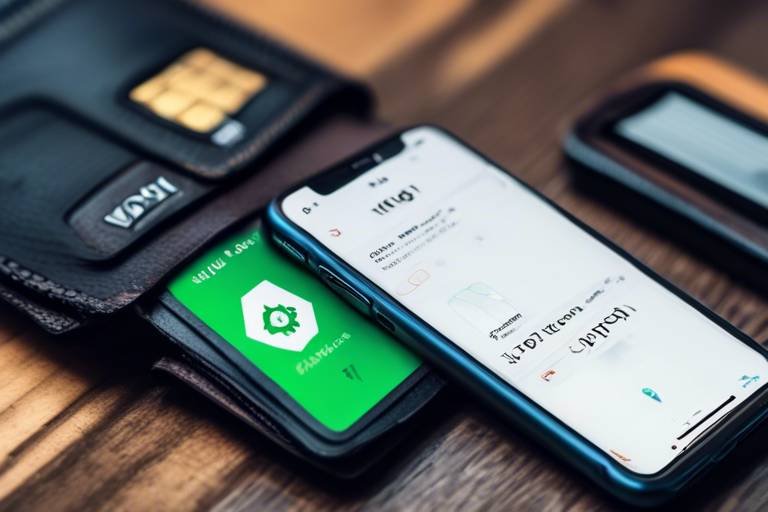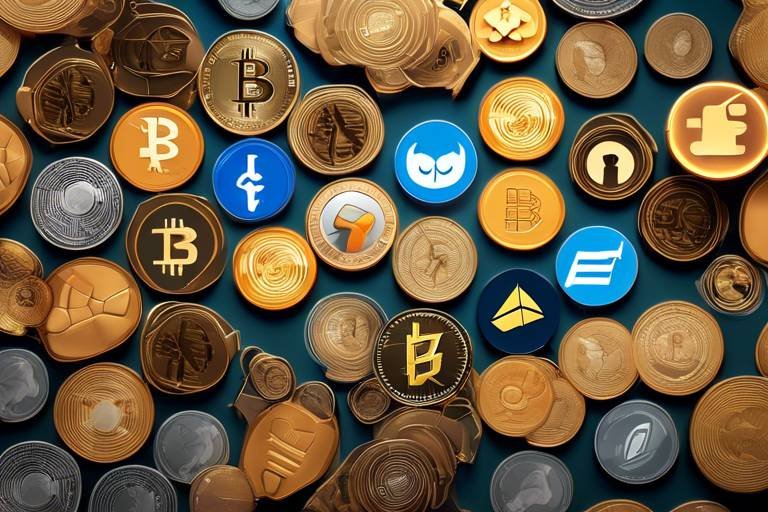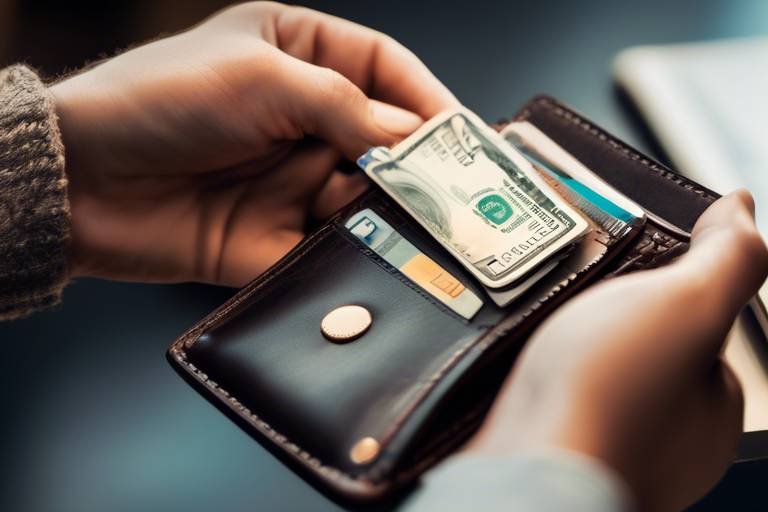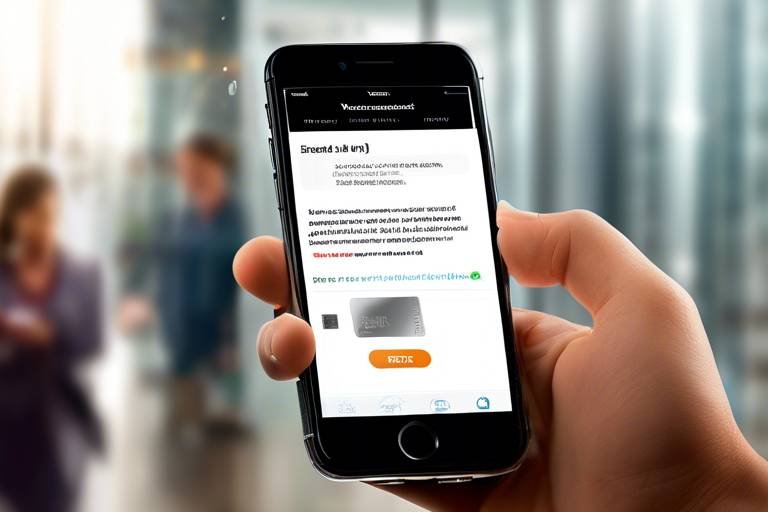Understanding the Relationship Between Wallets and Smart Contracts
In the rapidly evolving world of blockchain technology, the interaction between digital wallets and smart contracts is a pivotal aspect that users must grasp. Imagine your digital wallet as a secure vault, where you can store your cryptocurrencies and tokens, while smart contracts act like automated assistants that execute transactions on your behalf. This relationship not only enhances the efficiency of transactions but also empowers users to navigate the blockchain ecosystem with greater confidence and ease.
As we delve deeper into this topic, we will explore how these two components work together, the benefits they bring to users, and the implications for the future of digital transactions. The synergy between wallets and smart contracts is like peanut butter and jelly; separately they are useful, but together they create a powerful combination that can revolutionize the way we conduct business.
Digital wallets are essential tools for managing cryptocurrencies and tokens. They allow users to store, send, and receive digital assets securely while providing an interface for interacting with blockchain networks. On the other hand, smart contracts are self-executing contracts with the terms directly written into code. They automate processes and ensure trust between parties without the need for intermediaries, enhancing efficiency in various transactions. This article will take you through the basics of both wallets and smart contracts, illustrating how their integration can lead to a more streamlined and secure experience for users.
In the following sections, we will break down the mechanics of how these elements interact, the benefits of their integration, and real-world applications that demonstrate their potential. Whether you are a seasoned crypto enthusiast or a newcomer to the blockchain space, understanding the relationship between wallets and smart contracts is crucial for leveraging the full potential of digital assets.
Digital wallets serve as the gateway to the world of cryptocurrencies. They are essential tools for managing your digital assets, allowing you to store, send, and receive cryptocurrencies with ease. These wallets come in various forms, including mobile apps, desktop applications, and hardware devices, each offering different levels of security and convenience.
Smart contracts are like digital vending machines. They automatically dispense goods or services when specific conditions are met, eliminating the need for a middleman. These self-executing contracts are written in code and stored on the blockchain, ensuring that once deployed, they cannot be altered. This feature enhances trust and transparency, as all parties can verify the contract's terms without relying on a central authority.
Smart contracts operate on blockchain technology, executing automatically when predefined conditions are met. This mechanism eliminates the risk of manipulation and ensures transparency in contractual agreements. For example, if a smart contract stipulates that a payment should be made upon the delivery of goods, the transaction will occur automatically once the delivery is confirmed, without any human intervention.
Smart contracts offer several key features that make them invaluable in various applications:
- Immutability: Once deployed, smart contracts cannot be changed, ensuring the integrity of the agreement.
- Security: They use cryptographic techniques to secure transactions, making them resistant to fraud.
- Automation: By automating processes, smart contracts reduce the time and cost associated with traditional contracts.
Smart contracts are utilized in various sectors, from decentralized finance (DeFi) to real estate. Their ability to facilitate trustless transactions revolutionizes traditional business practices and enhances operational efficiency. For instance, in real estate, smart contracts can automate the transfer of property ownership, significantly reducing the time and costs involved in closing a deal.
Digital wallets serve as the bridge between users and smart contracts, allowing seamless interaction. Users can initiate transactions, deploy contracts, and manage assets directly through their wallets. This interaction simplifies the user experience, enabling individuals to engage with blockchain technology without needing extensive technical knowledge.
The integration of wallets and smart contracts offers numerous advantages, including enhanced security, improved user experience, and streamlined processes. This synergy empowers users to navigate the blockchain landscape more effectively. By combining the strengths of both, users can enjoy a more secure and efficient way to manage their digital assets.
Combining wallets with smart contracts enhances security through cryptographic measures and decentralized verification. This integration reduces the risk of fraud and unauthorized access, ensuring user assets remain protected. Just as a bank vault secures your money, this combination safeguards your digital wealth.
The interoperability between wallets and smart contracts simplifies the user experience. Users can easily manage their assets and execute transactions without needing extensive technical knowledge, fostering broader adoption of blockchain technology. It’s like having a user-friendly app that makes complex tasks feel effortless.
Q: What is the main purpose of a digital wallet?
A: A digital wallet allows users to securely store, send, and receive cryptocurrencies and tokens while providing an interface for interacting with blockchain networks.
Q: How do smart contracts ensure trust?
A: Smart contracts are self-executing agreements coded on the blockchain, which means they automatically enforce the terms of the contract without needing a third party, ensuring trust and transparency.
Q: Can I interact with smart contracts without a digital wallet?
A: No, a digital wallet is necessary to interact with smart contracts, as it serves as the interface for initiating transactions and managing digital assets.

The Basics of Digital Wallets
Digital wallets are essential tools in the modern financial landscape, acting as a virtual bridge between users and their cryptocurrency holdings. Imagine carrying a wallet in your pocket, but instead of cash and cards, it holds your digital assets. These wallets allow users to store, send, and receive cryptocurrencies and tokens securely, all while providing a user-friendly interface for interacting with blockchain networks. They come in various forms, including mobile apps, desktop applications, and hardware devices, each offering unique features and levels of security.
At their core, digital wallets function by storing the user's private and public keys. The public key is like your bank account number; it’s shared with others to receive funds. The private key, however, is akin to your PIN or password; it must be kept secret as it grants access to your digital assets. Losing your private key can mean losing access to your funds forever, which highlights the importance of securely managing your wallet.
Digital wallets can be categorized into two main types: hot wallets and cold wallets. Hot wallets are connected to the internet, making them convenient for daily transactions. However, this connectivity can expose them to security risks. Cold wallets, on the other hand, are offline storage solutions, such as hardware wallets or paper wallets, providing a higher level of security for long-term storage. Here’s a quick comparison:
| Type of Wallet | Connection | Security Level | Best Use Case |
|---|---|---|---|
| Hot Wallet | Online | Lower | Daily Transactions |
| Cold Wallet | Offline | Higher | Long-term Storage |
Furthermore, digital wallets not only facilitate the storage of cryptocurrencies but also enable users to interact with decentralized applications (dApps) and smart contracts. This interaction is crucial in the blockchain ecosystem, as it allows users to participate in various activities, such as trading, lending, and even gaming, all powered by the underlying blockchain technology. As we continue to explore the relationship between wallets and smart contracts, it becomes clear that digital wallets are not just passive storage solutions; they are active participants in the blockchain revolution.
In conclusion, understanding the basics of digital wallets is fundamental for anyone looking to navigate the world of cryptocurrencies. They are more than just a means to hold digital assets; they are gateways to a vast array of opportunities in the blockchain space. Whether you're a seasoned investor or a curious newcomer, familiarizing yourself with digital wallets will empower you to make informed decisions and engage confidently in the evolving landscape of digital finance.

What Are Smart Contracts?
Smart contracts are an innovative feature of blockchain technology that can transform the way we conduct transactions. Imagine a vending machine: you insert money, select your item, and the machine automatically dispenses it. This is akin to how smart contracts function, but instead of dispensing snacks, they execute agreements automatically based on predefined conditions. Essentially, a smart contract is a self-executing contract where the terms are directly written into code, allowing for automation without the need for intermediaries. This means that once the conditions are met, the contract executes itself, ensuring that all parties fulfill their obligations without needing a third party to oversee the process.
The beauty of smart contracts lies in their ability to enhance trust and efficiency. They operate on blockchain technology, which is decentralized and transparent. This means that once a smart contract is deployed, it cannot be altered or tampered with, ensuring that the terms remain immutable. This feature is crucial in a world where trust can often be hard to come by. With smart contracts, both parties can feel secure knowing that the terms of their agreement are protected by advanced cryptographic techniques.
To better understand smart contracts, let's break down some of their core features:
- Immutability: Once deployed, smart contracts cannot be changed, which prevents fraud and manipulation.
- Security: They utilize cryptography to secure transactions, making them highly resistant to hacking.
- Automation: Smart contracts automatically execute when conditions are met, reducing the need for manual intervention.
These features make smart contracts particularly well-suited for a variety of applications across different industries. For instance, in the finance sector, they can facilitate automatic payments and settlements. In supply chain management, they can track the provenance of goods and ensure that payments are made only when products are delivered. Even in the legal field, smart contracts can streamline agreements and reduce the time and cost associated with traditional contract enforcement.
As more businesses and individuals begin to recognize the power of smart contracts, their adoption is expected to grow exponentially. They not only simplify complex processes but also pave the way for a new era of trustless transactions, where parties can engage without the fear of dishonesty or fraud. In a world increasingly reliant on digital interactions, the role of smart contracts is becoming more essential than ever.
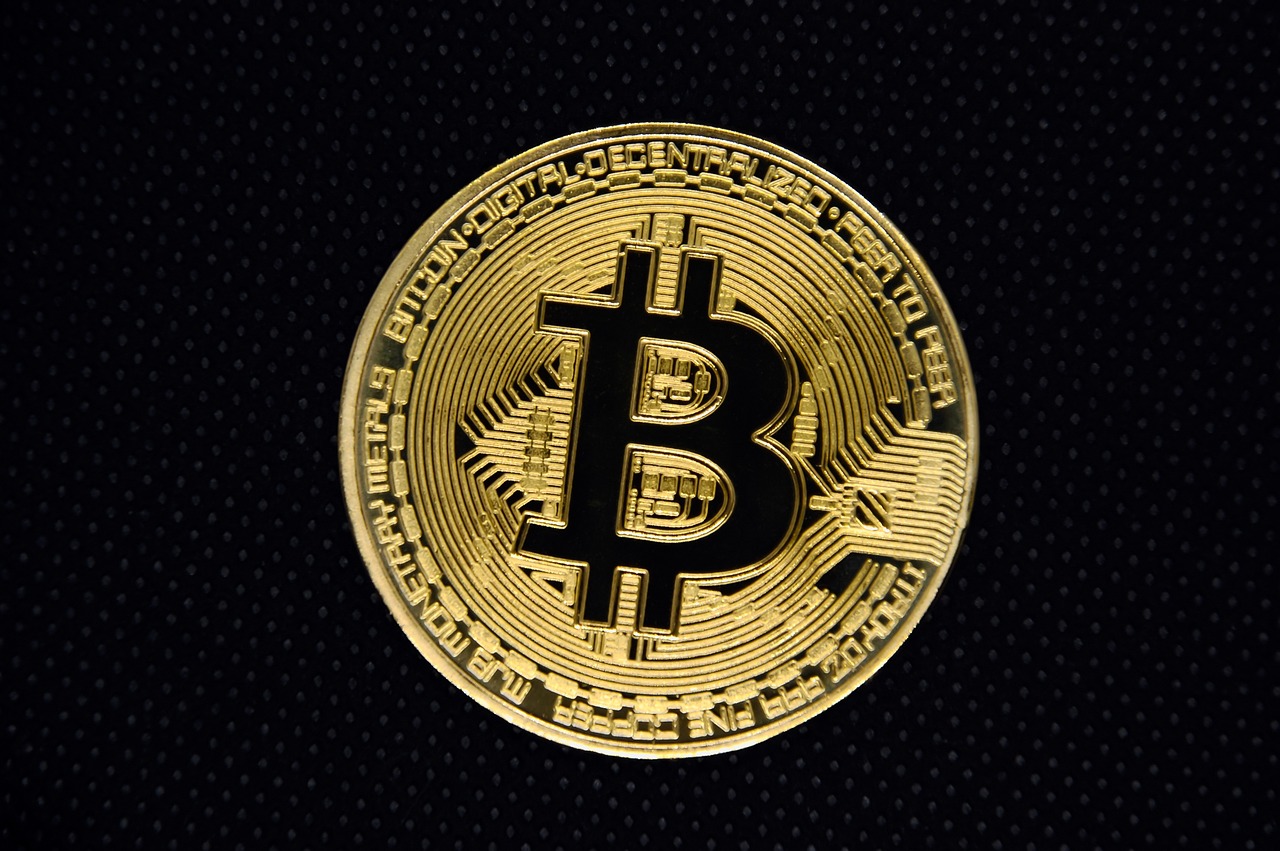
How Smart Contracts Work
Smart contracts are like the digital equivalent of a vending machine. Imagine you insert a coin, select your snack, and voilà! The machine automatically dispenses your choice without any human intervention. This is essentially how smart contracts operate within the blockchain ecosystem. They are coded agreements that self-execute when specific conditions are met, eliminating the need for intermediaries and ensuring that all parties can trust the process.
At their core, smart contracts leverage the power of blockchain technology. When a smart contract is deployed on a blockchain, it becomes immutable, meaning that once it’s set in motion, the terms cannot be altered. This immutability protects all parties involved from fraud and manipulation, as the code governs the execution of the contract. The beauty of this system lies in its transparency; anyone can verify the contract's terms and see the execution in real-time on the blockchain.
Here's a simplified breakdown of how smart contracts work:
- Condition Setting: The contract is programmed with specific conditions that must be met for it to execute. For example, "If Alice sends 1 ETH to Bob, then Bob will transfer ownership of a digital asset to Alice."
- Execution: Once the conditions are satisfied, the smart contract automatically executes the agreed-upon actions without any manual intervention.
- Verification: All transactions are recorded on the blockchain, providing a transparent and tamper-proof history of actions taken.
This process is further enhanced by the use of decentralized networks. Each node on the blockchain verifies the contract's execution, ensuring that there is no single point of failure. This decentralized verification mechanism not only boosts security but also enhances trust among users, as they know that the contract's performance is overseen by the entire network rather than a single entity.
Moreover, smart contracts can be integrated with various external data sources through oracles. Oracles act as bridges between the blockchain and the real world, providing necessary data that can trigger contract execution. For instance, a smart contract for insurance could automatically pay out if a weather oracle reports that a certain amount of rainfall has occurred, fulfilling the contract conditions without any human input.
In summary, smart contracts revolutionize the way transactions are conducted by offering a seamless, automated, and secure method for executing agreements. They are transforming industries by minimizing costs, reducing the time taken for transactions, and eliminating the need for trust in third parties. This innovative approach not only streamlines processes but also opens up a world of possibilities for new applications across various sectors.
Q: What happens if a smart contract contains a bug?
A: If there’s a bug in a smart contract, it can lead to unintended consequences, including financial loss. This is why thorough testing and auditing are crucial before deployment.
Q: Can smart contracts be changed after deployment?
A: No, once a smart contract is deployed on the blockchain, it cannot be altered. This immutability is one of its key features, ensuring trust and security.
Q: Are smart contracts legally binding?
A: The legal status of smart contracts varies by jurisdiction. While they can be enforceable, it’s essential to ensure that they comply with local laws.
Q: How do I create a smart contract?
A: Creating a smart contract typically requires programming knowledge, particularly in languages like Solidity for Ethereum. However, there are platforms that offer user-friendly interfaces for non-technical users.

Key Features of Smart Contracts
Smart contracts are not just a buzzword in the blockchain ecosystem; they are the backbone of numerous innovative applications. One of their most compelling features is immutability. Once a smart contract is deployed on the blockchain, it cannot be altered or tampered with. This characteristic ensures that all parties involved can trust the contract's terms without fear of manipulation. Imagine signing a legal document that can never be changed—this is the level of security smart contracts provide.
Another significant feature is security. Smart contracts utilize cryptographic techniques that make them extremely difficult to hack. This is akin to having a vault with multiple layers of security; only authorized users can access the funds or execute the contract. As a result, the risk of fraud is significantly minimized, creating a safer environment for digital transactions.
Furthermore, smart contracts offer unparalleled automation. They automatically execute predefined actions when certain conditions are met. For instance, think of a vending machine: you insert money, select your item, and the machine automatically delivers it. Similarly, smart contracts eliminate the need for intermediaries by executing transactions independently, streamlining processes and saving time.
Moreover, smart contracts enhance transparency. Every transaction is recorded on the blockchain, allowing all parties to view the contract's execution in real-time. This visibility fosters trust among users, as everyone can verify that the contract is being honored without needing to rely on a third party. In essence, smart contracts make the entire process more open and accountable.
Finally, the flexibility of smart contracts allows them to be applied across various sectors, from finance to healthcare. They can be tailored to meet specific needs, making them suitable for diverse applications such as decentralized finance (DeFi), supply chain tracking, and even voting systems. Their adaptability is one of the reasons why they are becoming increasingly popular in various industries.
In summary, the key features of smart contracts—immutability, security, automation, transparency, and flexibility—combine to create a powerful tool for modern transactions. These attributes not only enhance the efficiency of business processes but also build trust among users, paving the way for broader adoption of blockchain technology.
- What is a smart contract? A smart contract is a self-executing contract with the terms directly written into code, which automatically executes actions when predefined conditions are met.
- How secure are smart contracts? Smart contracts are highly secure due to cryptographic measures that protect against unauthorized access and fraud.
- Can smart contracts be changed after deployment? No, once a smart contract is deployed on the blockchain, it cannot be altered, ensuring immutability.
- What industries benefit from smart contracts? Smart contracts can be applied in various sectors, including finance, supply chain management, real estate, and healthcare.

Real-World Applications
Smart contracts are not just a buzzword in the tech world; they are making waves across various industries, fundamentally transforming how we conduct business. Imagine a world where transactions are executed automatically, without the need for middlemen, and where trust is built into the code itself. This is precisely what smart contracts offer, and their real-world applications are as diverse as they are impactful.
One of the most prominent sectors utilizing smart contracts is decentralized finance (DeFi). In this space, traditional financial services such as lending, borrowing, and trading are reimagined through blockchain technology. For instance, platforms like Aave and Compound allow users to lend their cryptocurrencies and earn interest without the need for a bank. The smart contracts handle all transactions, ensuring that funds are securely managed and that users can access their assets anytime.
Another fascinating application can be found in the realm of real estate. Imagine purchasing a property without the lengthy paperwork and the need for a realtor. Smart contracts can automate the entire process, from verifying ownership to transferring funds. When all conditions are met—such as the buyer providing the necessary payment—the smart contract executes automatically, transferring ownership seamlessly. This not only speeds up transactions but also reduces costs associated with traditional real estate dealings.
Moreover, smart contracts are revolutionizing supply chain management. Companies can track goods from production to delivery with unparalleled transparency. For example, a farmer can use a smart contract to ensure that their produce is delivered to a grocery store only when it meets specific quality standards. This level of automation and verification builds trust among parties involved, reducing disputes and enhancing efficiency.
In the healthcare sector, smart contracts can streamline patient records and ensure that medical data is shared securely among authorized parties. By using smart contracts, healthcare providers can automate processes like insurance claims, ensuring that patients receive timely care without the hassle of paperwork. The potential for improving patient outcomes and operational efficiency is immense.
Finally, the entertainment industry is also embracing smart contracts. Artists can protect their intellectual property rights by embedding terms directly into their music or art through smart contracts. This ensures that they receive fair compensation every time their work is used or sold, fostering a more equitable ecosystem for creators.
In summary, the real-world applications of smart contracts are vast and varied. They are not just a theoretical concept; they are actively reshaping industries by enhancing efficiency, reducing costs, and building trust. As we continue to explore the potential of this technology, it’s clear that smart contracts are here to stay, paving the way for a more automated and transparent future.
- What are smart contracts? Smart contracts are self-executing contracts with the terms of the agreement directly written into code, allowing for automated processes without intermediaries.
- How do digital wallets interact with smart contracts? Digital wallets act as a bridge, enabling users to initiate transactions, deploy contracts, and manage assets directly through their wallets.
- What industries are benefiting from smart contracts? Industries such as finance, real estate, supply chain management, healthcare, and entertainment are utilizing smart contracts to improve efficiency and transparency.
- Are smart contracts secure? Yes, smart contracts are designed to be secure, utilizing cryptographic measures and decentralized verification to protect user assets and reduce fraud risks.

Wallets and Smart Contracts Interaction
When you think about the blockchain ecosystem, it's easy to picture a complex web of technology and jargon that can feel overwhelming. But at its core, the interaction between digital wallets and smart contracts is a beautiful dance of technology that makes it all work seamlessly. Imagine your digital wallet as a key to a treasure chest filled with various assets, while smart contracts act as the rules that dictate how you can access and use those treasures. This relationship is pivotal, as it allows users to engage with the blockchain in a way that is both intuitive and powerful.
Digital wallets serve as the interface through which users interact with smart contracts. When you want to execute a transaction, such as buying a token or engaging in a decentralized finance (DeFi) protocol, your wallet communicates with the smart contract to initiate the process. This interaction is often **transparent** and **instantaneous**, allowing for real-time execution of transactions without the need for intermediaries. Think of it as sending a letter directly to a friend instead of going through a postal service that might delay the delivery.
Furthermore, the integration of wallets and smart contracts enhances user experience significantly. For instance, many wallets now provide built-in features that allow users to easily deploy their own smart contracts or interact with existing ones. This means that even individuals with minimal technical knowledge can participate in complex blockchain activities. The user-friendly interfaces and guided processes make it simple to navigate through various functions, like creating a new contract or performing a transaction.
But what about security? This is where the magic truly happens. When you initiate a transaction through your wallet, the smart contract ensures that all conditions are met before executing the transaction. This mechanism not only protects users from errors but also minimizes the risk of fraud. In this sense, smart contracts are like a digital bouncer at a club, making sure that only those who meet the entry requirements can get in.
In summary, the interaction between wallets and smart contracts is essential for the functionality of the blockchain ecosystem. It empowers users to manage their assets efficiently while ensuring that transactions are secure and automated. As this technology continues to evolve, we can expect even more innovative solutions that will make blockchain technology accessible to everyone. So next time you think about using a digital wallet, remember that it's not just a tool—it's your gateway to a world of possibilities.
- What is a digital wallet? A digital wallet is a software application that allows users to store, send, and receive cryptocurrencies and tokens securely.
- How do smart contracts work? Smart contracts are self-executing contracts with the terms directly written into code, which execute automatically when predefined conditions are met.
- Can I create my own smart contract? Yes, many digital wallets provide tools that allow users to create and deploy their own smart contracts without extensive programming knowledge.
- Are transactions through wallets and smart contracts secure? Yes, the integration of cryptographic measures and decentralized verification enhances the security of transactions.

Benefits of Integrating Wallets with Smart Contracts
The integration of digital wallets with smart contracts brings a plethora of advantages that can significantly enhance the user experience in the blockchain ecosystem. Imagine a world where your assets are not just stored securely, but also automatically managed and executed based on predefined conditions. This is the magic that happens when wallets and smart contracts work together. One of the most notable benefits is the enhanced security that comes from this integration. By leveraging cryptographic measures and decentralized verification, users can rest easy knowing their assets are safeguarded against fraud and unauthorized access.
Furthermore, this synergy leads to an improved user experience. Traditional financial systems often require a deep understanding of processes and intermediaries, which can be daunting for many users. However, with the integration of wallets and smart contracts, the complexities are hidden behind user-friendly interfaces. Users can manage their assets and execute transactions with ease, making blockchain technology accessible to a broader audience. This democratization of technology is essential for fostering widespread adoption.
Let's break down some of the key benefits:
- Streamlined Processes: Users can initiate transactions and deploy contracts directly from their wallets, eliminating the need for multiple platforms.
- Real-Time Transactions: Smart contracts execute automatically, ensuring that transactions are processed instantly without delays.
- Cost Efficiency: By removing intermediaries, users can save on fees typically associated with traditional financial transactions.
In addition to these advantages, the integration fosters a sense of trust among users. With smart contracts, the terms of agreements are transparent and immutable, meaning once a contract is deployed, it cannot be changed. This characteristic builds confidence, as users know that the rules of engagement are set in stone. The combination of wallets and smart contracts not only enhances security and user experience but also paves the way for innovative applications that can transform industries.
For example, in the realm of decentralized finance (DeFi), users can lend, borrow, and trade assets seamlessly, all while their transactions are governed by smart contracts. This level of automation and trust is revolutionary, making financial services more accessible and efficient than ever before. Additionally, industries such as real estate are beginning to adopt these technologies, allowing for transparent property transactions without the need for traditional escrow services.
In conclusion, the integration of digital wallets with smart contracts is not just a trend; it's a fundamental shift in how we interact with digital assets. By enhancing security, improving user experience, and streamlining processes, this synergy empowers users to navigate the blockchain landscape more effectively. As we continue to explore the possibilities of this integration, the potential for innovation and growth in various sectors is limitless.
Here are some common questions regarding the integration of wallets and smart contracts:
- What is a digital wallet? A digital wallet is a secure application that allows users to store, send, and receive cryptocurrencies and tokens.
- How do smart contracts work? Smart contracts are self-executing contracts with the terms written into code, automating processes and ensuring trust between parties.
- Why should I use a wallet with smart contracts? Using a wallet with smart contracts enhances security, simplifies transactions, and provides a seamless user experience.

Enhanced Security Features
When it comes to the world of digital assets, security is paramount. The integration of digital wallets with smart contracts significantly boosts the security framework within which users operate. Imagine your digital assets as valuable treasures; you wouldn't want just anyone to access them, right? This is where the robust mechanisms of cryptography and decentralized verification come into play.
One of the most compelling aspects of this integration is the use of cryptographic measures. These measures ensure that only authorized users can execute transactions or access specific features of a smart contract. Think of it like having a secret key to a treasure chest. Without this key, the chest remains locked, protecting its contents from prying eyes or malicious actors.
Moreover, smart contracts operate on a decentralized network, which means that no single entity has control over the entire system. This decentralization is akin to a community watch program where everyone keeps an eye out for suspicious activity. In this environment, the risk of fraud and unauthorized access diminishes significantly, as malicious attempts to alter or manipulate the contract would require consensus from the majority of network participants.
To further illustrate the enhanced security features of integrating wallets with smart contracts, consider the following key points:
- Immutability: Once a smart contract is deployed, it cannot be changed. This feature ensures that the terms agreed upon are set in stone, providing users with peace of mind.
- Automated Auditing: Smart contracts can automatically verify the fulfillment of conditions, reducing the need for third-party audits and minimizing the chances of human error.
- Transparent Transactions: All transactions are recorded on the blockchain, allowing for easy tracking and verification. This transparency builds trust among users.
In summary, the enhanced security features provided by the integration of digital wallets and smart contracts create a fortified environment for users. This synergy not only protects assets but also fosters a sense of trust and reliability within the blockchain ecosystem. As more users become aware of these advantages, the adoption of this technology is likely to soar, paving the way for a more secure digital future.
Q: How do digital wallets enhance the security of smart contracts?
A: Digital wallets use cryptographic measures and decentralized verification to protect user assets, ensuring only authorized transactions can occur.
Q: What happens if a smart contract is compromised?
A: Due to the immutability of smart contracts, once deployed, they cannot be altered. However, if a vulnerability is found, it is crucial to address it as soon as possible to prevent exploitation.
Q: Can I recover my assets if I lose access to my wallet?
A: Recovery depends on the type of wallet. Some wallets offer backup solutions, while others may not. It's essential to follow best practices for securing your wallet information.
Q: Are smart contracts completely safe?
A: While smart contracts significantly enhance security, they are not immune to risks. Users should always be cautious and conduct thorough research before engaging with any smart contract.

Improved User Experience
When it comes to engaging with blockchain technology, the user experience is paramount. Imagine trying to navigate a complex maze without a map; that’s how many people feel when they first interact with digital wallets and smart contracts. The integration of these two technologies has significantly simplified the process, making it more intuitive and accessible for everyone, regardless of their technical background.
One of the standout features of this integration is the seamless interaction it provides. Users can effortlessly manage their digital assets right from their wallets without needing to dive deep into the technicalities of blockchain. This means that whether you're sending cryptocurrency to a friend or engaging in a smart contract for a new decentralized finance (DeFi) project, the steps are straightforward and user-friendly. Think of it as using a smartphone app: you don’t need to understand the code behind it; you just need to know how to tap the screen!
Furthermore, the interoperability between wallets and smart contracts allows for a smoother transaction process. Users can initiate transactions with just a few clicks. The wallet interface typically presents clear options and prompts that guide users through each step, reducing the chances of errors. When you consider how traditional banking systems often require multiple steps and complicated forms, this simplicity is a breath of fresh air.
Another aspect to consider is the educational component. Many wallets now come equipped with resources and tutorials that demystify the world of smart contracts. Users can learn about the underlying technology and its benefits without feeling overwhelmed. This educational approach not only empowers users but also encourages them to explore more features and functionalities available within their wallets.
In addition, the integration of wallets and smart contracts fosters a sense of trust and confidence among users. When they see that their transactions are secure and that they can easily monitor their activities, they are more likely to engage with the blockchain ecosystem. This confidence is crucial for broader adoption, as it transforms hesitant users into active participants in the digital economy.
To summarize, the integration of digital wallets with smart contracts has revolutionized the user experience by:
- Providing a user-friendly interface that simplifies complex processes.
- Enabling seamless transactions with minimal effort.
- Offering educational resources that empower users.
- Building trust and confidence in blockchain interactions.
As we continue to see advancements in this space, it’s clear that the future of digital transactions is not only about security and efficiency but also about enhancing the overall user experience. The more intuitive these systems become, the more likely we are to see widespread adoption across various sectors.
Q1: What is a digital wallet?
A digital wallet is a software application that allows users to store, send, and receive cryptocurrencies and tokens securely. It acts as an interface for interacting with blockchain networks.
Q2: How do smart contracts work?
Smart contracts are self-executing contracts where the terms are written into code. They automatically execute transactions when predefined conditions are met, ensuring transparency and trust.
Q3: Can I use a digital wallet for multiple cryptocurrencies?
Yes! Most digital wallets support multiple cryptocurrencies, allowing users to manage various digital assets in one place.
Q4: Are transactions made through smart contracts secure?
Yes, transactions made through smart contracts are secured by blockchain technology, which ensures immutability and decentralization, reducing the risk of fraud.
Q5: Do I need technical knowledge to use a digital wallet?
No, digital wallets are designed to be user-friendly. Most wallets provide easy-to-follow instructions, making them accessible even to those without technical expertise.
Frequently Asked Questions
- What is a digital wallet?
A digital wallet is a software application that allows you to store, send, and receive cryptocurrencies and tokens. Think of it as your online bank account for digital assets, providing a secure way to manage your funds while interacting with blockchain networks.
- How do smart contracts work?
Smart contracts are self-executing agreements where the terms are written directly into code. They automatically execute when certain conditions are met, eliminating the need for intermediaries and ensuring that transactions are transparent and secure.
- What are the benefits of using smart contracts?
Smart contracts offer several benefits, including increased efficiency, reduced costs, and enhanced security. They streamline processes by automating transactions and ensuring that agreements are honored without the risk of manipulation.
- How do digital wallets interact with smart contracts?
Digital wallets act as a bridge between users and smart contracts. They enable users to initiate transactions, deploy contracts, and manage their digital assets seamlessly, making it easier to engage with blockchain technology.
- What security features do wallets and smart contracts provide?
The integration of wallets with smart contracts enhances security through cryptographic measures and decentralized verification. This means your assets are better protected against fraud and unauthorized access, giving you peace of mind.
- Can anyone use a digital wallet and smart contracts?
Yes! Digital wallets and smart contracts are designed to be user-friendly, allowing anyone to manage their assets and execute transactions without needing extensive technical knowledge. This accessibility fosters broader adoption of blockchain technology.
- What are some real-world applications of smart contracts?
Smart contracts are being used in various sectors, including finance, supply chain management, and real estate. They facilitate trustless transactions, revolutionizing traditional business practices and improving operational efficiency across industries.




